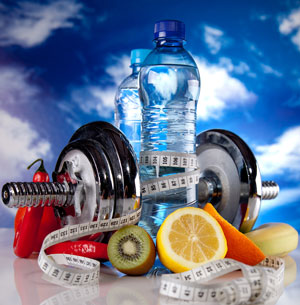Reply To:
Name - Reply Comment
Last Updated : 2024-04-26 15:05:00
(1).jpg) - By Lakna Paranamanna and Sarasi Paranamanna
- By Lakna Paranamanna and Sarasi Paranamanna.jpg)
.jpg) He said, sports coaches and physical training instructors look through the basic physical examination for doctor’s advice on the health of the child and he added that according to internationally accepted standards the person who is to take part in a sport should go through a pre-participation physical evaluation where he/she is asked a series of questions about his/her medical history and physical condition.
He said, sports coaches and physical training instructors look through the basic physical examination for doctor’s advice on the health of the child and he added that according to internationally accepted standards the person who is to take part in a sport should go through a pre-participation physical evaluation where he/she is asked a series of questions about his/her medical history and physical condition..jpg)
 “Athletes and sports enthusiasts should note that nutrition training is as important as physical training for better performance,” Sri Lanka Nutritionists’ Association President Dr. Renuka Silva said. He said, due to the present trend of lifestyles, most students are used to skipping breakfast which is not a healthy habit to develop. “The timing of food consumption is important and it is vital for those engaged in sports to train themselves to a meal plan,” he said.
“Athletes and sports enthusiasts should note that nutrition training is as important as physical training for better performance,” Sri Lanka Nutritionists’ Association President Dr. Renuka Silva said. He said, due to the present trend of lifestyles, most students are used to skipping breakfast which is not a healthy habit to develop. “The timing of food consumption is important and it is vital for those engaged in sports to train themselves to a meal plan,” he said..jpg) The St. John’s Association for Sri Lanka Brigade Coordinating officer and trainer B. A. Cooray, said it is vital for students to be equipped with knowledge on first-aid as it would not only increase the possibility of securing the casualty’s life but would also help avoid further deterioration of the condition. “Currently, there is no regulation which makes it compulsory for every school to be equipped with a first-aid team. It is most unfortunate and the authorities’ attention should be shed on this issue,” he said.
The St. John’s Association for Sri Lanka Brigade Coordinating officer and trainer B. A. Cooray, said it is vital for students to be equipped with knowledge on first-aid as it would not only increase the possibility of securing the casualty’s life but would also help avoid further deterioration of the condition. “Currently, there is no regulation which makes it compulsory for every school to be equipped with a first-aid team. It is most unfortunate and the authorities’ attention should be shed on this issue,” he said.
Add comment
Comments will be edited (grammar, spelling and slang) and authorized at the discretion of Daily Mirror online. The website also has the right not to publish selected comments.
Reply To:
Name - Reply Comment
US authorities are currently reviewing the manifest of every cargo aboard MV
On March 26, a couple arriving from Thailand was arrested with 88 live animal
According to villagers from Naula-Moragolla out of 105 families 80 can afford
Is the situation in Sri Lanka so grim that locals harbour hope that they coul